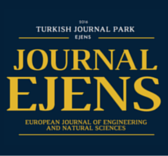Conference sessions will be in Yunus Emre Institute Sarajevo
Sarajevo, Bosnia and Herzegovina
Sarajevo is the capital city of Bosnia and Herzegovina. It is its administrative, economic, cultural and educational center. The city center of Sarajevo is a unit of local self-governance, which consists of four municipalities: Old City, Center, New City and New Sarajevo.
The city is famous for its traditional religious diversity, with adherents of Islam, Orthodoxy, Catholicism and Judaism coexisting there for centuries. Due to this long and rich history of religious diversity and coexistence Sarajevo has often been called the "Jerusalem of Europe”.
The modern city arose as an Ottoman stronghold in the 15th century. Sarajevo has attracted international attention several times throughout its history: In 1914 it was the site of the assassination that sparked World War I, while seventy years later it became the host city of the 1984 Winter Olympics. Unfortunately, Sarajevo underwent the longest siege in modern military history during the Bosnian War which happened in 1992-1995. The war destructed the old city almost completely and the effects of war can still be seen in many parts of the city even after almost 20 years.
Today the city is recovering and adjusting to a post-war reality, as a major center of culture and economic development in Bosnia and Herzegovina. Sarajevo was also the first city in Europe and the second city in the world to have a full-time operational electric tram network running through the city, the first being San Francisco. Lonely Planet has named Sarajevo as the 43rd best city in the world and in December 2009 listed Sarajevo as one of the top ten cities to visit in 2010.





